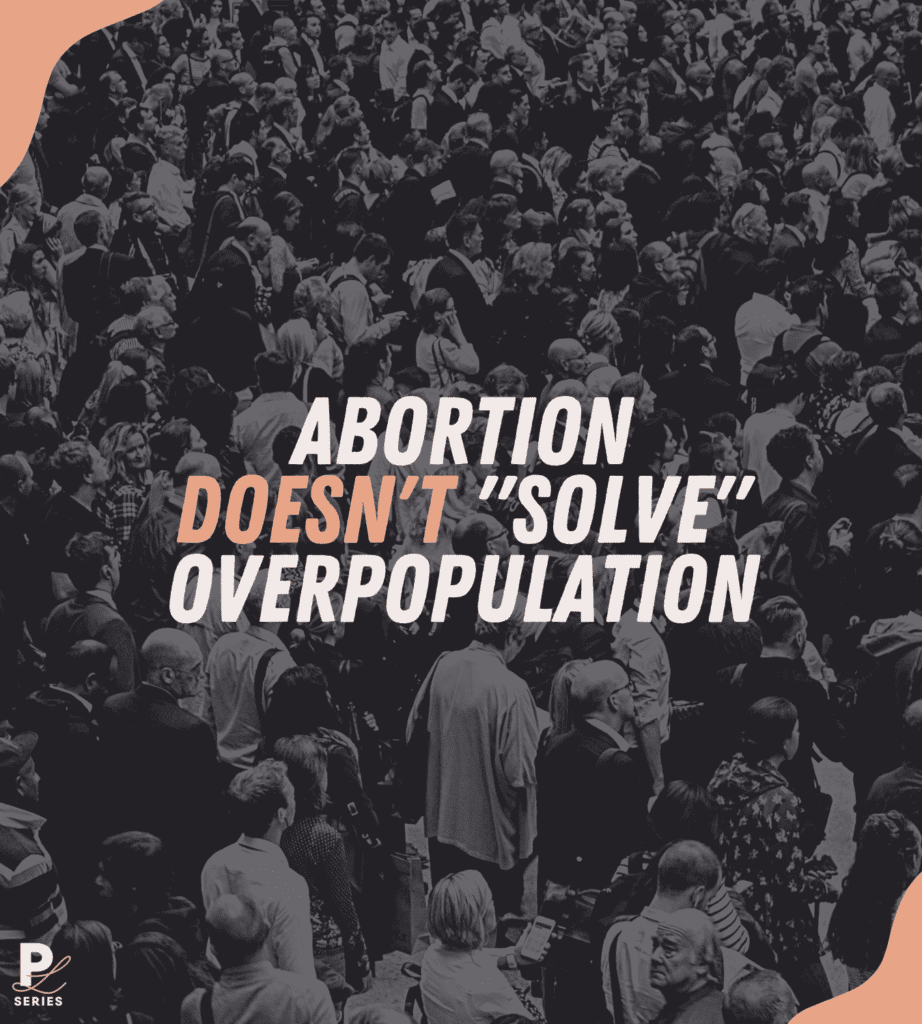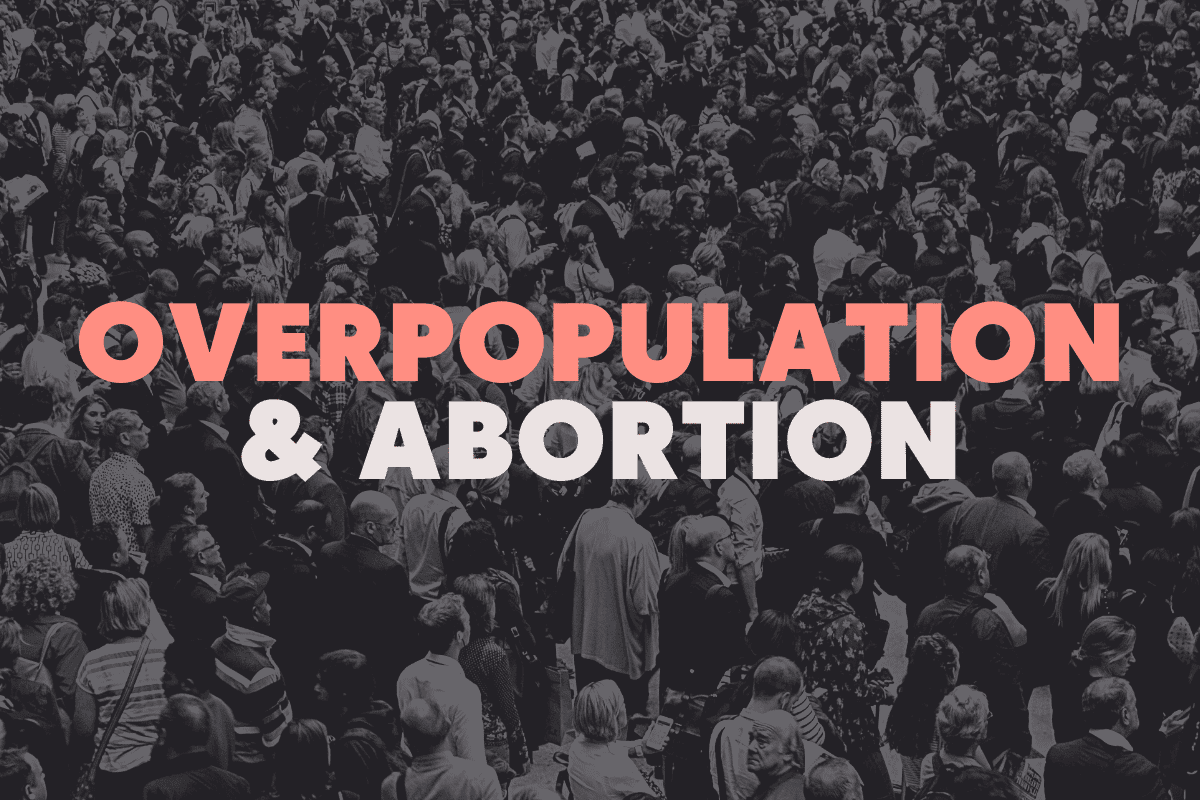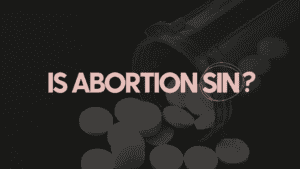Overpopulation will destroy our world. Abortion is the answer.
This argument is convincing. After all, when food shortages, global warming and overcrowding are brought up, how could we not be concerned? What will we do when there’s simply too many people in the world? Could we have prevented it? Justifying abortion seems so easy when it looks like the only answer to warding off such a future. But, despite something that looks like a “quick fix,” abortion and overpopulation are two complex issues that can’t be resolved by the other.
Population Control in History
The concept that humanity would benefit from ending a portion of humanity has always been wrong. Consequently, evolution of population control reveals a dark history:
[Overpopulation] has moved through four distinct but closely related stages; Malthusianism, eugenics, the population bomb, and is now in the stage known as ‘reproductive rights.'
Austin Ruse, Center for Family & Human Rights
Whether you believe overpopulation is real or not, abortion is simply one of many poor ideas to further the concept of population control. The mere suggestion of taking innocent lives so ours may benefit is along the lines of every other population control attempt: immoral, inhumane and wrong. Consider historical events with a similar mindset. Slavery was justified because it “bettered life for the majority of people.” Likewise, the goal of Hitler was to eliminate a specific population to “make a living space” for Germans to be self-sufficient. Even the biggest villain from the Marvel Cinematic Universe thought similarly; by eliminating half of all life, Thanos claimed that “the other half would thrive.”
Overpopulation: Is It Real?
The concept of overpopulation has been interpreted differently for decades. George Morris describes overpopulation as the state of the population “when there are more people that can live on the earth in comfort, happiness and health and still leave the world a fit place for future generations.” More generally, the Population Summit views overpopulation as the population becoming too large to be sustained by its resources or environment.
However, even with all of the worry, there are no signs of the country or world’s population reaching an overpopulated point anytime soon, considering the current state of our resources and environment.
Resources
Resources are not scarce, especially in the United States. We could double in population and still have more than enough food to sustain everyone (and that’s without any changes to current systems). If foreign agricultural processes are simply tweaked, other countries wouldn’t need the food exports we provide, and therefore leave us with even more. This is also assuming that we make no further improvements to resource production, which would defy history. Producing resources is only becoming more efficient because of increasing ingenuity.

Food is made on the least amount of land than ever before. We can extract natural resources from the ground much easier. As proof, resources are less expensive than 40 years ago, and price is a marker for availability: the more we have, the less it costs.
Essentially, the claim that hunger will rise if abortion is banned has no validity.
Environment
Those with concern over carbon emissions and climate change also cite abortion as the solution. They believe less children born equal less emissions, therefore delaying disaster. But these arguments for abortion solving overpopulation can also be debunked quickly.
For one, people are not pollution. Blaming too many people for driving climate change is like blaming too many trees for brush fires. The root of any environmental change is not people, it is emissions. Also, couples with no children have been shown to produce more harmful emissions than their parental counterparts (due to the additional leisure/activities). So, children can be thought to benefit the emissions issue rather than harm it.
All of this means that if abortion never took the millions of lives it has taken, we could have easily supported every child with the resources they need. We would also see no – or even better – change in the environment.
Outcome of Population Control By Abortion
China's One-Child Policy
Population control efforts are always followed by destructive consequences. Most recently, China was the first to legally implement population control. Citizens of the country were forced to only give birth to one child through China’s one-child policy. If a woman were to be pregnant a second time, she was coerced into abortion. Due to the negative consequences, they revoked the policy in 2016 and now have no limits on births – but the results have still been catastrophic.

- They could carry on the family name and inherit property.
- Physical strength in a primitive agricultural society means more income.
- In Chinese social culture, the blood of the family has been inherited by the male side (meaning a couple takes care of the father’s parents rather than the mother’s).
The Biggest Consequence
Far and away, the worst consequence from trying to solve overpopulation through abortion is the lack of innocent children in a corrupted world. Not only does population control reduce genetic diversity, but it also limits our thinking and problem-solving when it doesn’t need to be. Why wouldn’t we want more bright minds coming together to solve the world’s pressing issues? Why would we deny help with all the environmental, physical and emotional toll on our culture? If anything, we need more people immediately developing things like green industries, agriculture and global trade. New life is never a negative. And it may be exactly what we need right now.
How can there be too many children? That is like saying there are too many flowers.
Mother Theresa
Taking lives of those outside the womb to “improve” life for the rest of us would turn the world into the unethical figures of our past. And taking children’s lives in the womb is no different, considering personhood begins far before birth. Abortion is not population control. They are both extremely harmful practices, and both need to be a thing of the past. Everyone, including babies in the womb, have the basic human right to life.
If we revoke those rights, what more could we sacrifice?



















